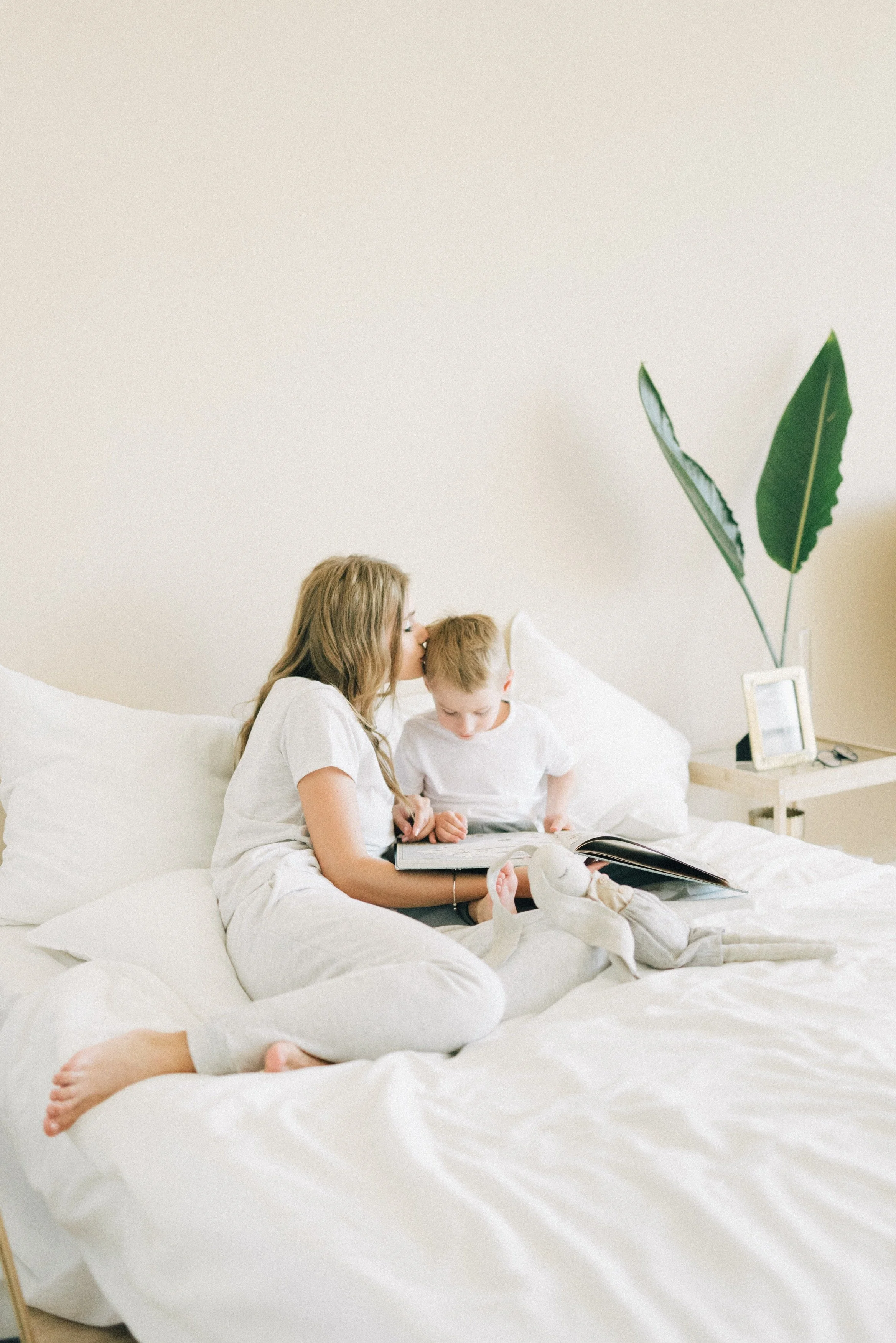Bedwetting: the taboo subject, few parents are willing to talk about
Mom comforting boy about bedwetting
In my busy coaching practice I am hearing many more stories of nocturnal enuresis ( bedwetting) and whilst it affects many school-age children, I am now seeing more of it in tweens and some teens. It's not a serious health problem, and children usually grow out of it, but it can be so upsetting for both children and parents, and can really impact on children’s quality of life. I know many professionals advise parents that when the child is ready, they will master it, but there are occasions when more is needed and this is where changing thoughts and beliefs can be very useful.
So I invited Harley Street professional Alicia Eaton, whose an expert in helping parents change their children’s habits and behaviours, to write this guest blog post and give us some top tips and let us know we parents can do to scaffold their children and help change their habits.
Is your child stuck with a miserable bedwetting habit?
Do sleepovers and school trips fill you with worry?
Do you long for a better night’s sleep?
If you’re the parent of a child that regularly wets their bed at night it’s very easy to feel alone because it’s still a bit of a taboo subject that few people are willing to talk about. Children naturally want it to be kept a secret from their school friends and in some cases, even their siblings. But it is a common problem with over 750,000 school age children in the UK struggling with a bedwetting habit, so it’s very likely there will be one or two children with the same problem in your child’s class at school.
Bedwetting – also known as nocturnal enuresis – affects most children up to the age of three as development of bladder function control is a slow process and it can be quite common in children up to the age of eight.
Most health professionals will advise that it’s best not to make a fuss of it and simply wait till your child grows out of it - but as all too many parents discover, that could mean waiting till they hit their teens. By that time, your child may have struggled with sleepovers, school trips and missed out on many residential opportunities. Children who get stuck with a bedwetting habit can feel as if they're second-best and pretty quickly, start to act as if they are second-best.
Searching for answers and solutions can be an exhausting process. Traditional approaches include bedwetting alarms that often wake up the entire household but not the child that has it clipped to their underwear! And other options include trips to doctors and specialist clinics who prescribe medications that don’t always work and can cause side-effects.
If your child starts to have night time accidents out of the blue, then it’s advisable to make an appointment with your GP to check for a urine infection, as this can quickly be cleared up with a course of antibiotics. Other likely causes could be exam stress, a house move or the arrival of a new sibling, so think about these too.
But whilst it’s common to worry that anxiety might be the cause of the problem, this is not always the case. More often than not, it’s simply a case of a child never reaching that moment of being dry at night. Their body has got into a habit of bedwetting and now it’s just not that easy to stop it. Habits can be hard to break - as so many of us know!
Here’s some useful advice:
1) Food and drinks:
Ensure your child stays well hydrated throughout the day with plenty of plain water to drink. It’s tempting to think about restricting fluids close to bedtime but you can only do this if sufficient drinks have been consumed during the day. Constipation can be a cause of bedwetting and this will help to prevent it. Avoid substituting drinks before bedtime with soft fruits such as strawberries or melon as these can have a diuretic effect on the body, encouraging your child to wee more.
2) Bedroom environment:
Check your child is sleeping in a room that is well ventilated – not too hot and not too cold. It’s best for them to sleep in a darkened room as this is more likely to promote a better night’s sleep, so switch off any night lights. For the same reason, the hour before sleep should be a digital-free time with laptops, phones and TVs switched off. It’s also helpful to create a clutter free space removing obstacles such as clothes, shoes and games off the bedroom floor to make it easier for your child to find the bathroom at night-time.
3) Punishments, rewards and bribes:
Doling out punishments, consequences (such as losing pocket money) or getting angry will simply not work with a bedwetting child. They’re asleep when it happens and so not consciously able to stop – if anything, these are more likely to make the problem worse! The use of a star chart to act as a reminder might work well for a younger child but in the main, you’ll find it easier to avoid treats, rewards and bribes. It’s inevitable that your child will have a few accidents and each time this happens, they’ll first have the disappointment of a wet bed and then a second one when they realise they’ve missed out on their reward or treat.
However there is a solution, as Alicia has designed a 'Stop Bedwetting in 7 Days' programme, which has been a global best-seller for over ten years and is also recommended by the NHS.
The course is a unique blend of psychology and practical parenting advice will help your child become more confident and self-assured, excited about school trips and overnight stays with friends.
The ‘Stop Bedwetting’ programme teaches your child to understand how their body functions and what it is they need to do to improve the communication between the bladder and brain at night time. It’s designed to make the process of solving your child’s bedwetting as easy as possible.
We all know that today’s kids need no extra encouragement to sit and watch online videos on their screens and the concept of online learning is not new to them. So this will be the easiest way for them to learn how to take control of their body.
There’s also lots of advice for parents, so you’ll discover:
* The common mistakes regularly made by parents.
* The key changes you need to make to your bedtime routine
* The top 5 food and drinks you really should avoid
* The 2 key ingredients to add to the diet.
* What to say to help your child overcome anxiety
* How to boost your child’s confidence for sleepovers and trips away
Interested? The bedwetting programme can be purchased here and enter PP-SPECIAL-10 to get a 10% discount off the price of the course.
Make this a summer of supporting your child to take control of their body.
Just to be completely transparent, I am an affiliate of The ‘Stop Bedwetting’ programme and may be paid commission if you buy through my link, however I only
endorse products and services that I believe in and would highly recommend.

